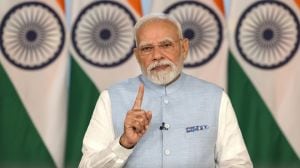Protect heroism from sadism
Khudiram, the sixteen-year old revolutionary martyr of Bengal, repented when he came to know after his arrest that he and his associate, Pr...

Khudiram, the sixteen-year old revolutionary martyr of Bengal, repented when he came to know after his arrest that he and his associate, Prafulla, had mistakenly killed Mr and Mrs Kennedy instead of Kingsford, the then District and Sessions Judge of Muzaffarpur.
Unlike the today’s terrorists of Punjab, Kashmir or elsewhere, our revolutionary freedom fighters, though labelled as `terrorists’ by the British Raj, never did indulge in indiscriminate violence even against the common Englishmen. Their targets were their adversaries or exploiters — the English bureaucrats, judges, police officials and their native associates.As for our today’s police, killing of terrorists in fake encounters is the most common practice, whereas the imperial British police felt most happy when they could arrest a revolutionary alive and put him to trial. The reason is simple. The British police had profound faith in their criminal justice system. But today, our own cops have lost faith in the system of dispensation of justice, and this is often reflected in their resorts to extra-judicial measures.
K. P. S. Gill’s reaction to A. S. Sandhu’s suicide may appear to be impassioned. Still can we say `no’ to his legitimate demand that the conduct of every wing of the State including the judiciary throughout the years of terror in Punjab must be subject to review?
When terrorism was at its height in Punjab, it allegedly became a common practice for many judicial officers to take leave in order to avoid the conduct of trials of the accused terrorists. In Kashmir some judicial officers were alleged to be more liberal in granting bail to the terrorists. While on bail, some of them even managed to cross the border.
Gill has also expressed his anguish at the “trial by the Press”. There was a time when Gill was projected as the `hero’ by the same press. I still recall that afternoon way back on June 10, 1994 when Gill was shairing a session in which I had to present a paper at an international seminar on Violence in Punjab at Chandigarh. Sitting besides Gill, I witnessed the media’s craze to take his photographs which was not so much there the earlier day when the then Governor of Punjab, late Surindra Nath, inaugurated the seminar.
Both Gill and Sandhu’s widow lashed out at human rights activists. Gill had even gone to the extent of accusing human rights organisations as `an industry’. We may readily dismiss such accusations as the impassioned reactions of two anguished persons. But, we can hardly deny that the role of these organisations over the years have had negative impact on the morale of security force personnel who put their lives at stake in defence of our national integrity. We would be ungrateful if we forget that as many as 1,440 and 548 security force personnel were killed in terrorist violence in Punjab and Kashmir between 1981-91 and 1988-93 respectively.
No one should object to the human rights organisations’ movement against police excesses. What surprises others is their silence on the atrocities committed by the terrorist and militant groups, their apathy to other more important and related issues such as police reforms and the inhuman service and living conditions of the Jawans of security forces.
I fully endorse Gill’s view that “the situation that prevailed in Punjab for over a decade was a state of war a proxy war.” I also agree with what the BJP leader, Jaswant Singh, wrote in an article published in this paper on June 2 that “when a State fights shy of protecting its own uniformed personnel, then that State is not very far from losing its own Iqbal”.
Singh urged for the State protection of heroism. I do not disagree with him. But, the core issue is how to protect heroism from sadism. State terrorism can never be an answer to terrorism. No civil society can condone gross violation of human rights by the State forces. Today’s Iqbal needs to draw a Lakshman Rekha between heroism and sadism so as to become eligible for State protection.
The writer is a senior faculty member of the Indian Institute of Public Administration, New Delhi
Photos



- 01
- 02
- 03
- 04
- 05



























